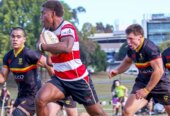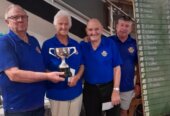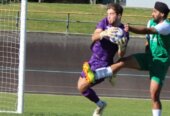Neville Clark can spot a champion polo horse a mile off.
He spins around in the assembly area at Mystery Creek Polo Club and points out millions of dollars’ worth of horse flesh.
The Gisborne auctioneer brought 10 of his best polo horses to Waipā for the Festival of Polo, as did other New Zealand owners. Six hundred horses in all.
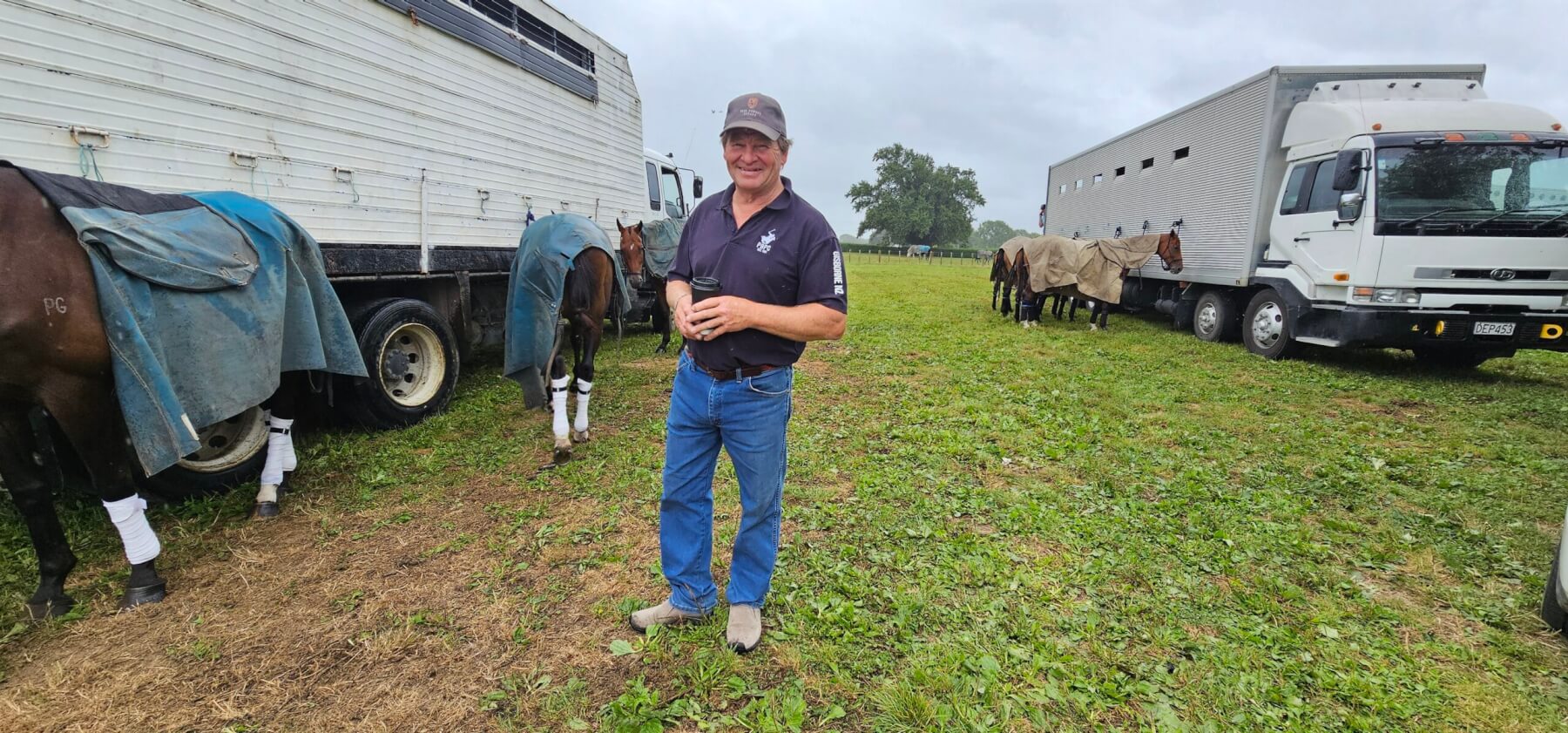
Neville Clark brought 10 of his best polo horses west from Gisborne. Photo: Mary Anne Gill.
Members of the Australian polo teams had their pick of what Clark described as “the best horsepower on show” and as good as anything else in the world.
Driving rain and wind on Friday marred the opening day for spectators but conditions suited the thoroughbred horses selected to play in the men’s and women’s Australia vs New Zealand test matches.
The Kiwis won the women’s match 5-3 while the tables were turned in a high-scoring men’s match with the Australians winning 9-7.
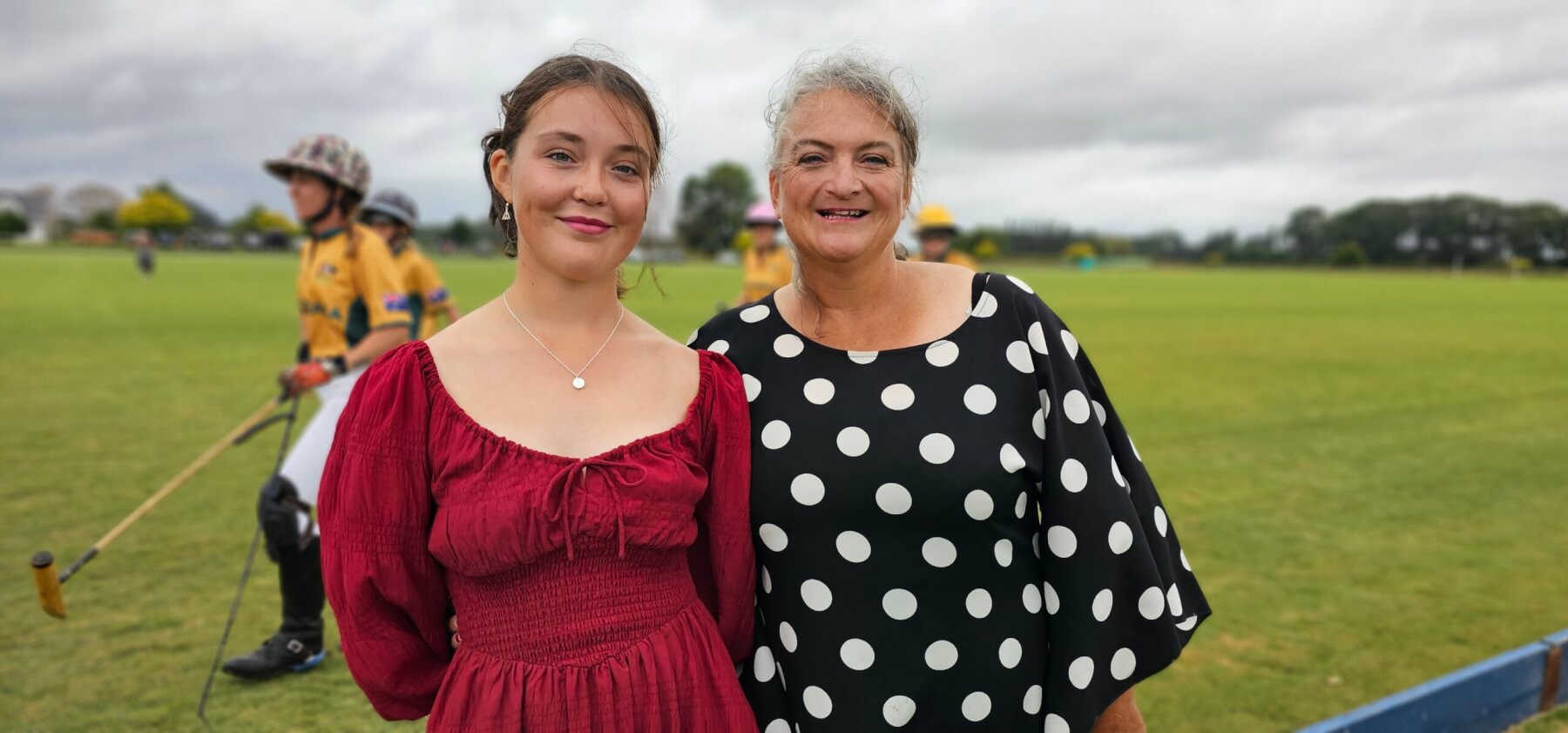
Alice Collins of Kihikihi, right, and her daughter Grace Gower, sang the national anthems. Photo: Mary Anne Gill.
Waipā’s contributions came from Kihikihi mother and daughter Alice Collins and Grace Gower who sang the national anthems.
Legendary jumps jockey and trainer Ann Browne threw the ball to start the opening chukka in the test match which featured her granddaughter Missy Browne, the Kiwi captain.
Australia’s Bianca Jane Drake felt right at home as she has based herself in Leamington for several months.
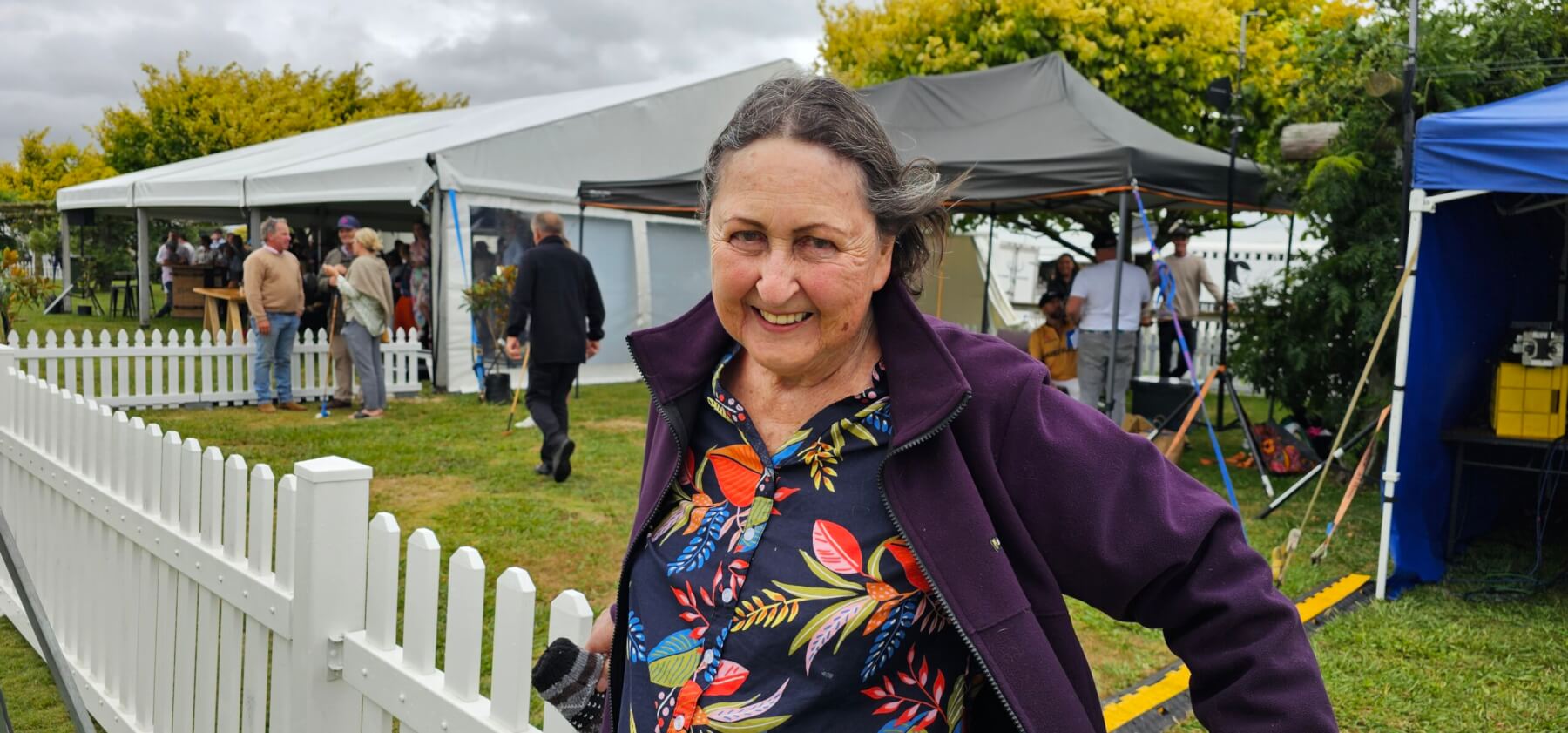
Ann Browne is the patron for New Zealand Polo. Photo: Mary Anne Gill.
By Sunday the weather at the polo club, home to New Zealand polo legends John-Paul and Nina Clarkin – had warmed up for finals day with teams competing in several grades. All told 1635 visitors enjoyed the polo action featuring 240 players and grooms.
Polo horses come to the sport via the thoroughbred industry and are bred for racing.
“They may not have made it on the track, but they become very, very good at polo,” says Clark.
“We’ve got some of the best horses in the world on the back of how we’ve bred our horses over the years.”
The horses are three to four years in the making to become the ultimate sports animal in the oldest ball sport in the world.
In New Zealand the Savile Cup, believed to be the country’s oldest sporting trophy, will be played later this month in Kihikihi and Cambridge starting February 27.
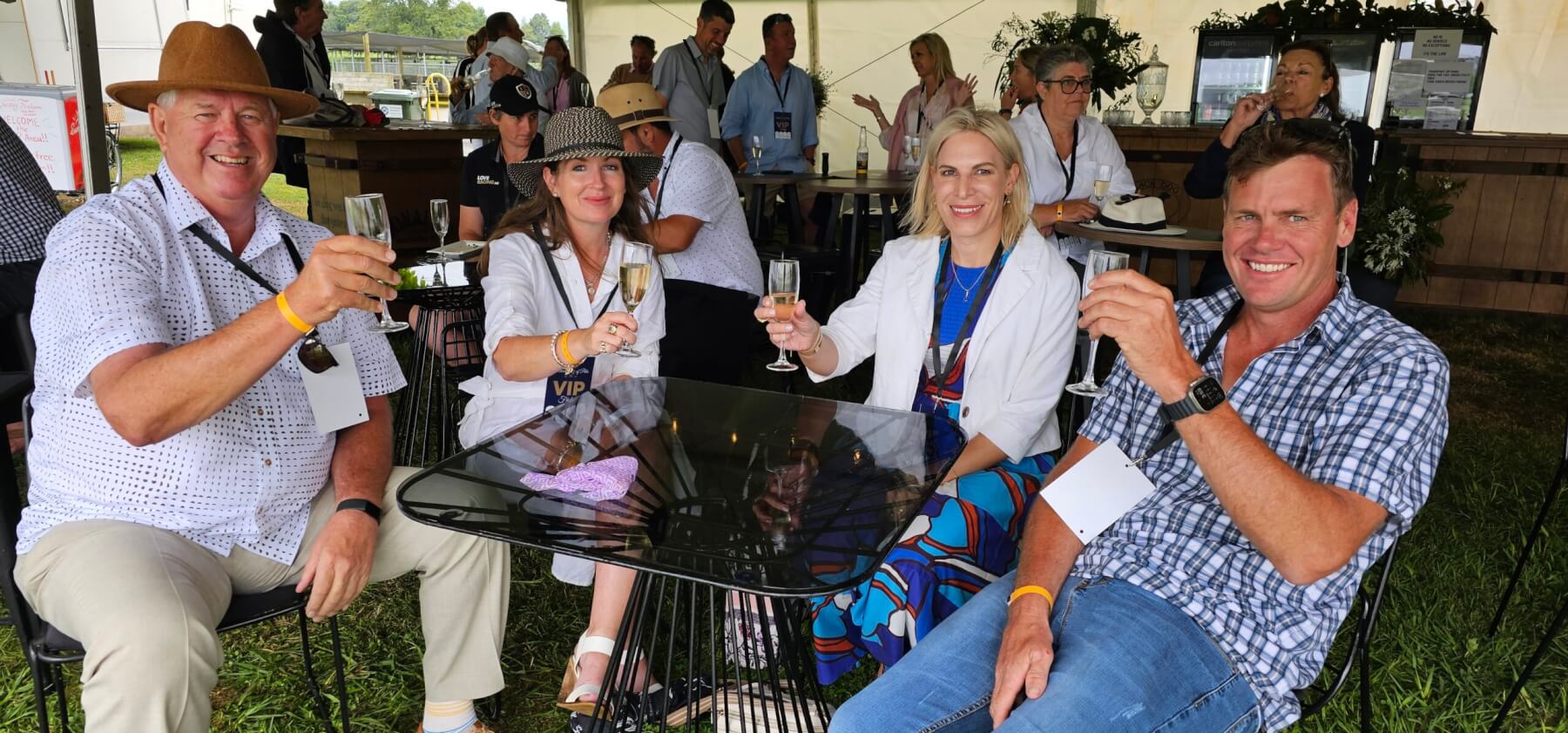
Cheers: A Cambridge contingent at the polo from left Rollo Webb, Laura Gray, Victoria Whitfield and Steven Barnard. Photo: Mary Anne Gill.
Horses can play up till they are 15, says Clark.
“They’re fed twice a day, well shod and in immaculate order. A horse won’t conduct itself and play the game if it’s not in them.”
The horses know their way around the polo field too despite their riders sometimes.
“They’ll follow the ball, they’ll read what’s going on.”
The horses are switched by players every three to four minutes, ensuring the dynamic pace of polo is maintained. Each player, on average, manages one to three horses per game, this allows for tired mounts to be replaced by fresh ones.
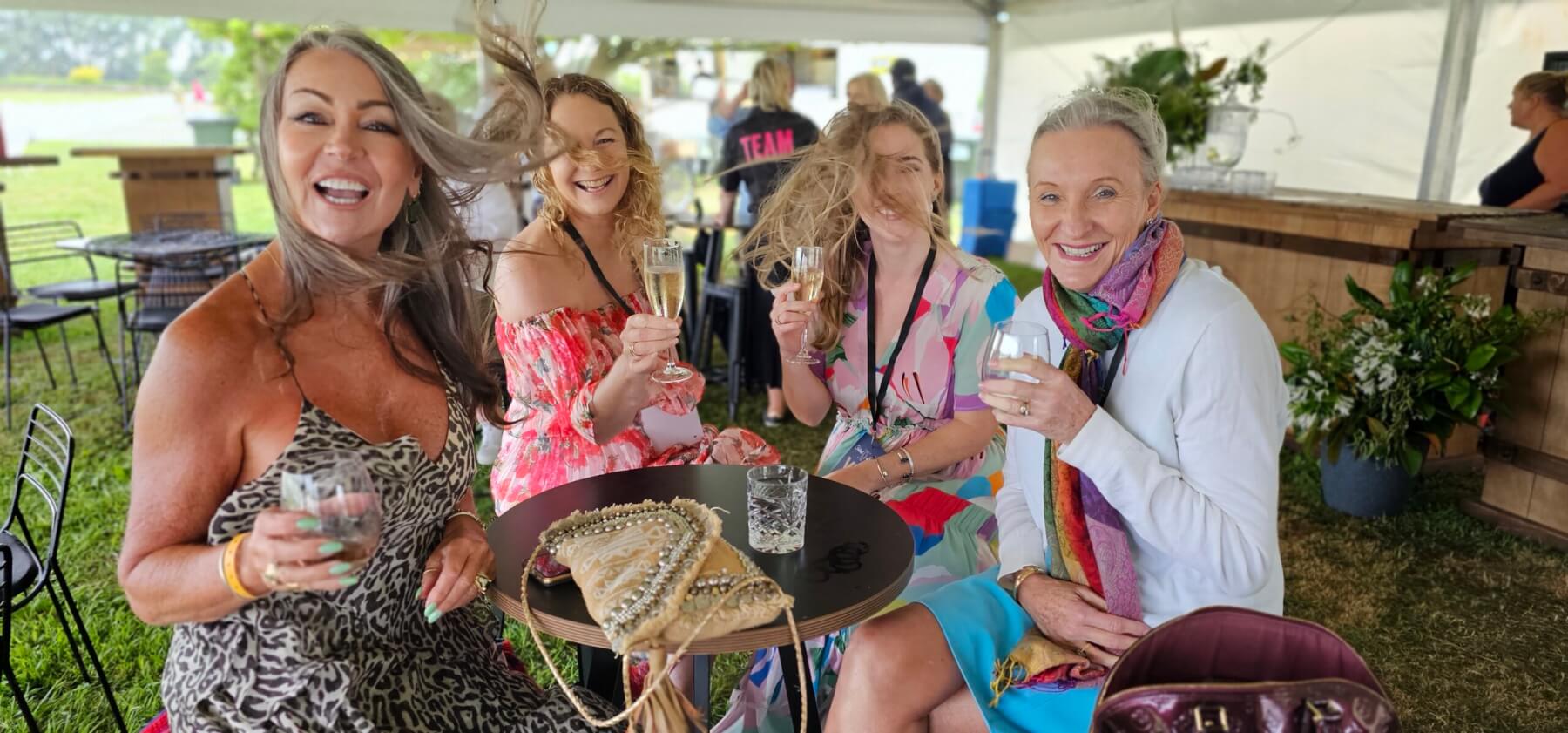
Gusty winds greeted these ladies at the Mystery Creek international polo day but they were there to have fun, from left Lesley MacDonald (Hamilton), Vicky Sutton, Meredith Riddle and Belinda Gelston (all Cambridge). Photo: Mary Anne Gill.
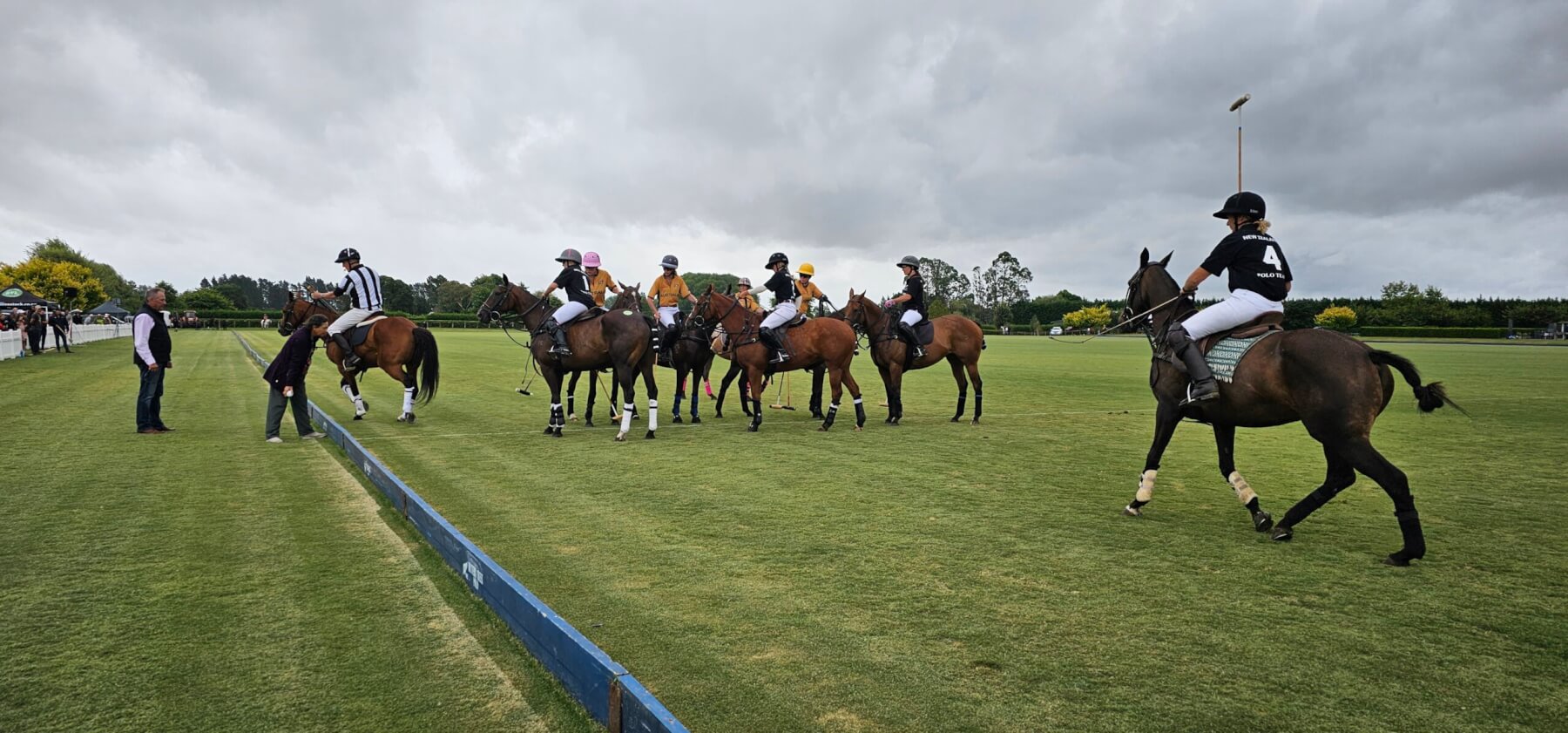
New Zealand Polo patron Ann Browne gets the first chukka underway in the test between the Australian and New Zealand women. Photo: Mary Anne Gill
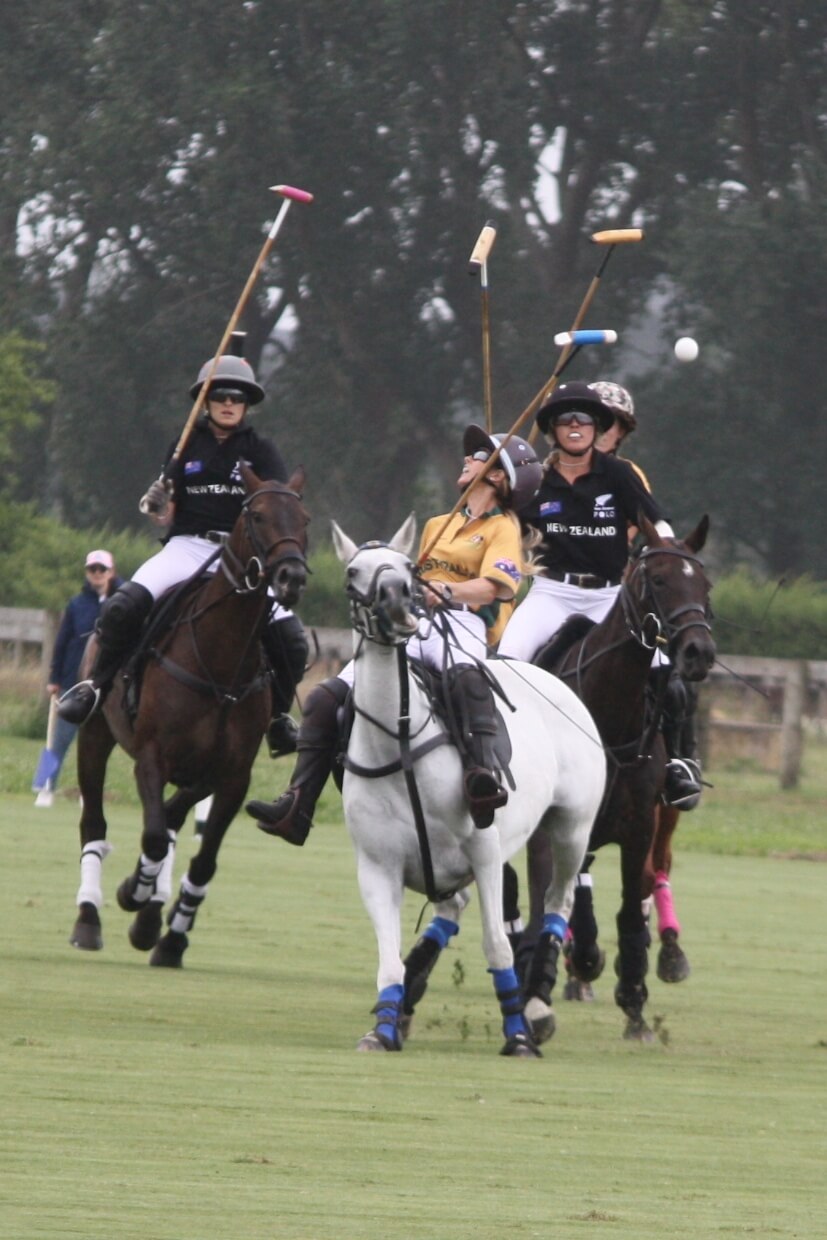
Mystery Creek International Polo
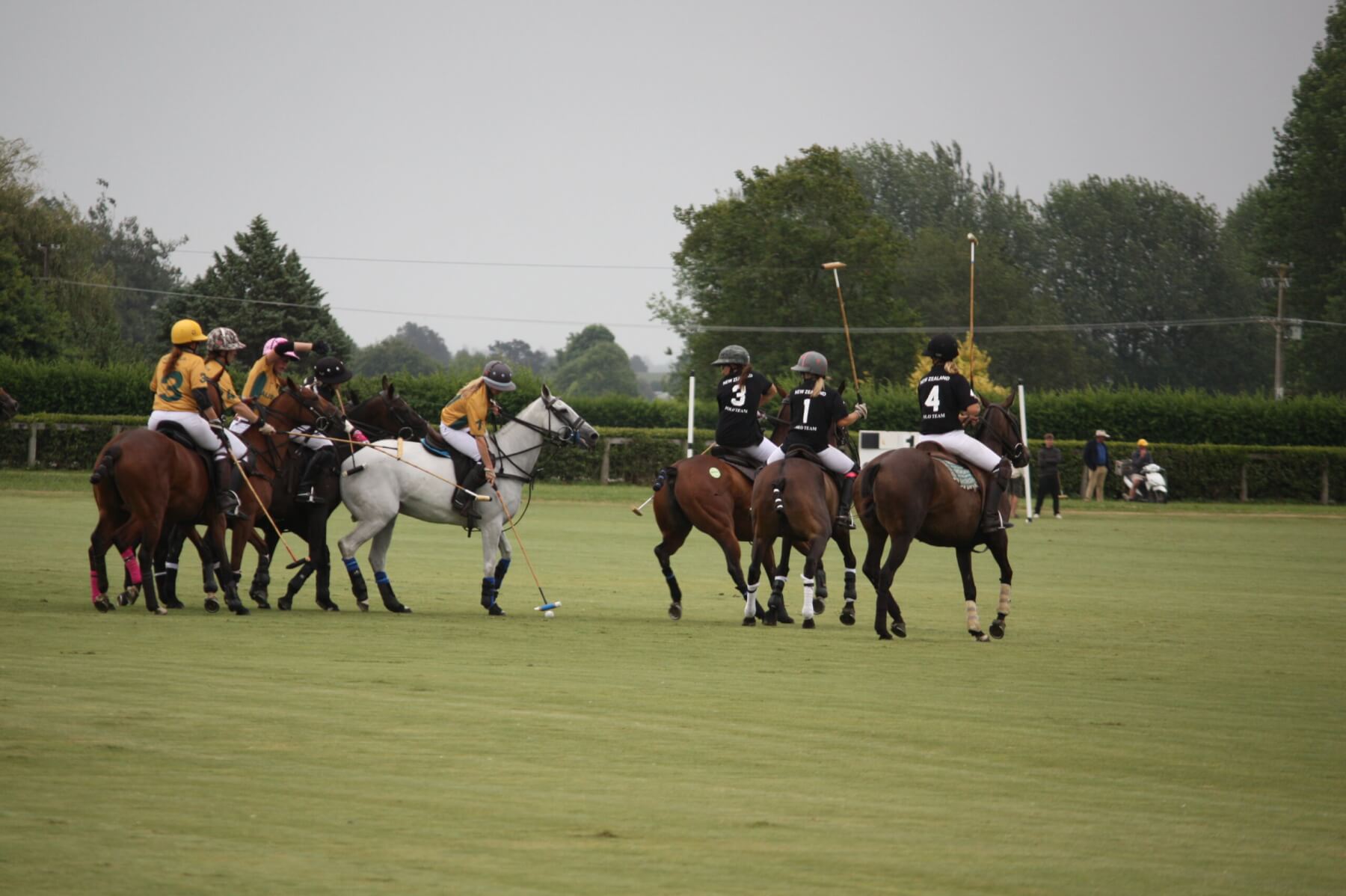
Mystery Creek International Polo
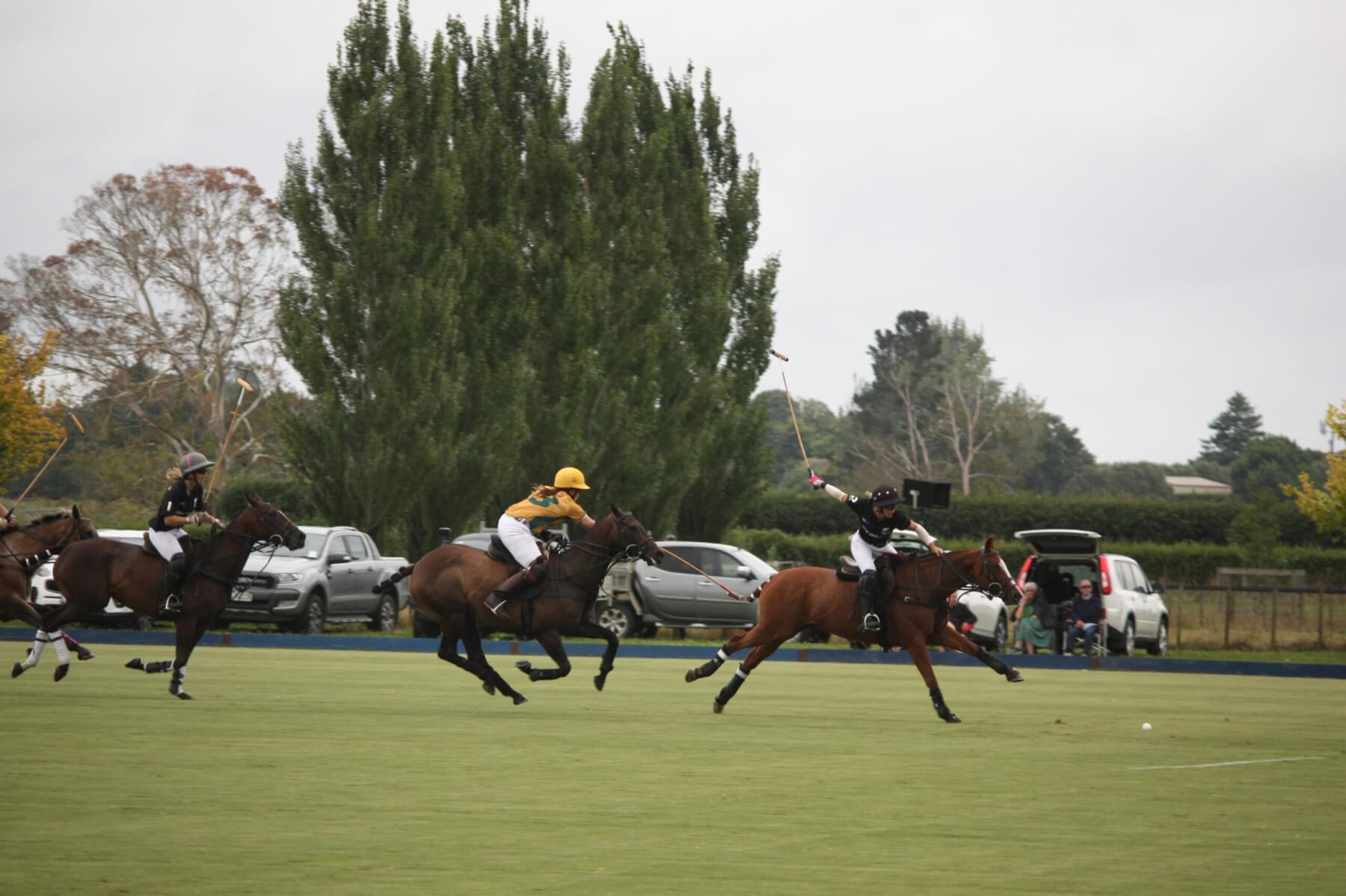
Mystery Creek International Polo
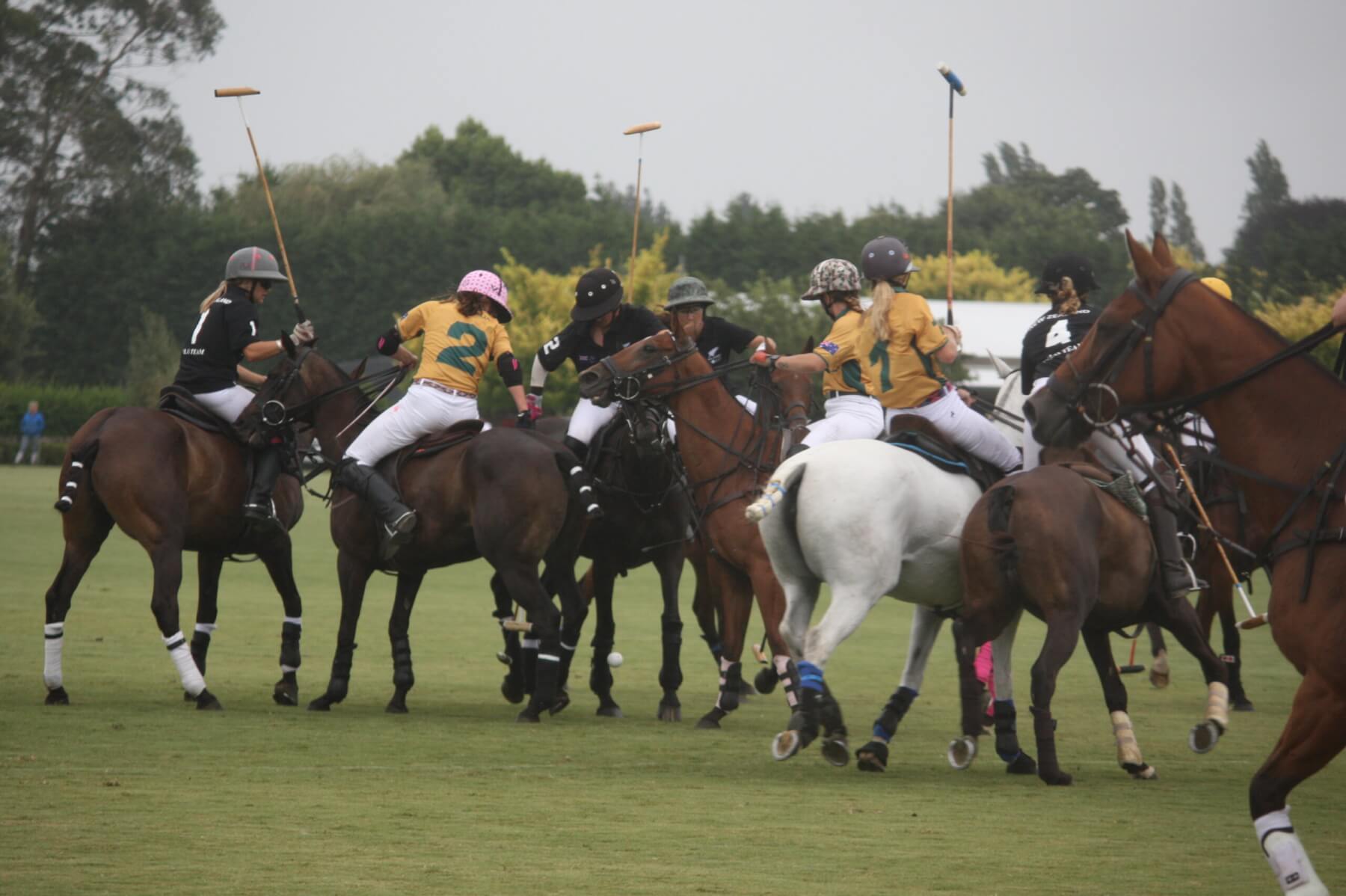
Mystery Creek International Polo






